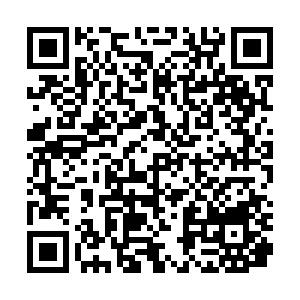|
[1]
|
Armantrout, Rae. Interview with the author. November 11, 2014. San Diego.
|
|
[2]
|
Chernoff, Maxine. Interview with the author. November 17, 2014. San Francisco.
|
|
[3]
|
Emery, Brook. Interview with the author. October 25, 2014. Sydney.
|
|
[4]
|
Gander, Forrest. Interview with the author. July 19, 2013. Petaluma.
|
|
[5]
|
Hoover, Paul. Interview with the author. November 14, 2014. San Francisco.
|
|
[6]
|
Kocot, Noelle. Interview with the author. July 13, 2013. Elizabeth.
|
|
[7]
|
McGuckian, Medbh. Correspondent, email message to author. February 11th, 2015-April 14th, 2015.
|
|
[8]
|
Waldrep, G. C. Interview with the author. July 9, 2013. Bucknell.
|
|
[9]
|
Williams, C. K. Interview with the author. July 25, 2013. New York.
|
|
[10]
|
Wright, C. D. Interview with the author. July 20, 2013. Petaluma.
|
|
[11]
|
Alberti, Rafael. “El ángel Avaro.”In The Penguin Book of Spanish Verse. Edited by J. A. Cohen. Middlesex: Penguin, 1955, 409-10. Althusser, Louis. “Ideology and Ideological State Apparatuses (Notes towards an Investigation).”In Lenin and Philosophy and Other Essays. Translated by Ben Brewster. London: New Left Books, 1971, 121-76. Anderson, B. Imagined Communities: Reflections on the Origin and Spread of Nationalism. Revised 2nd ed. London; New
|
|
[12]
|
York: Verso, 1991. Armantrout, Rae. Versed. Middletown: Wesleyan University Press, 2010. Bendixen, Alfred and Stephen Burt. “Introduction.”In The Cambridge History of American Poetry. Edited by Alfred
|
|
[13]
|
Bendixen and Stephen Burt. Cambridge: Cambridge University Press, 2014, 1-12. Bennet, Donn and Russell Brown, eds. A New Anthology of Canadian Literature in English. 2nd ed. Oxford: Oxford
|
|
[14]
|
University Press, 2002. Brubaker, Rogers. “Ethnicity, Race and Nationalism.”Annual Review of Sociology 35, no. 28 (2009): 21-42. ——. Grounds for Difference. Cambridge, MA.: Harvard University Press, 2015. Brumberg, H. L., D. Dozor and S. G. Golombek. “History of the Birth Certificate: from Inception to the Future of
|
|
[15]
|
Electronic Data.”Journal of Perinatology 32, no. 6 (2012): 407–11. Burt, Stephen.“American Poetry at the End of the Millennium.”In The Cambridge History of American Poetry. Edited by
|
|
[16]
|
Alfred Bendixen and Stephen Burt. Cambridge: Cambridge University Press, 2014, 1144-66. Casanova, Pascale.“Literature as a World.”New Left Review 31 (Jan-Feb. 2005): 71-90. Chernoff, Maxine. Evolution of the Bridge: Selected Prose Poems. Norfolk: Salt Publications, 2005. Cope, Jack and Uys Krige, eds. The Penguin Book of South African Verse. Harmondsworth: Penguin, 1968. Davis, Mike.“Marx’s Lost Theory: The Politics of Nationalism in 1848.”New Left Review 93 (May-June 2015): 45-66. Dove, Rita, ed. The Penguin Anthology of Twentieth Century American Poetry. New York: Penguin, 2007. Dow, Philip, ed. 19 New American Poets of the Golden Gate. Orlando: Harcourt Brace Jovanovich, 1983. Fink, Reuben.“Visas, Immigration and Official Anti-Semitism.”In This Immigrant Nation: Perspectives on an American
|
|
[17]
|
Dilemma, Articles from The Nation 1868—The Present. Edited by Richard Lingeman. E-book: The Nation, 2014, n. p.
|
|
[18]
|
Gellner, Ernest. Nations and Nationalism. Ithaca: Cornell University Press, 1983.
|
|
[19]
|
Graham, Jorie. “A Feather for Voltaire.”In The Dream of the Unified Field: Selected Poems, 1974-1994. Hopewell: Ecco
|
|
[20]
|
Press, 1995, 17. Hass, Robert.“James Wright.”In Twentieth Century Pleasures: Prose on Poetry. New York: Ecco Press, 1984, 26-55. Hoey, Michael. Lexical Priming: A New Theory of Words and Language. London; New York: Routledge/AHRB, 2005. H.lderlin, Friedrich. Selected Poems of Friedrich H.lderlin. Translated by Maxine Chernoff and Paul Hoover. Oakland:
|
|
[21]
|
Omnidawn, 2008. Jones, Reece. Violent Borders, Refugees and the Right to Move. London: Verso, 2016. Keller, Lynn, “Green Reading: Modern and Contemporary American Poetry and Environmental Criticism.”In The Oxford
|
|
[22]
|
Handbook of Modern and Contemporary American Poetry. Edited by Cary Nelson. Oxford: Internet, 2012, 602-23. DOI: 10.1093/oxfordhb/9780195398779.013.0023. Klinkowitz, Jerome and Patricia B. Wallace, eds. The Norton Anthology of American Literature: Volume E: Literature
|
|
[23]
|
Since 1945. New York: W. W. Norton and Co., 2007. Lehman, David, ed. The Oxford Book of American Poetry. New York: Oxford, 2006. McQuade, Donald, ed. The Harper American Literature, Volume 2. New York: Harper and Row, 1987. Male.evi., Sini.a.“The Chimera of National Identity.”Nations and Nationalism 17, no. 2 (2011): 272-90. Oppen, George. “World, World—.”In New Collected Poems. Edited by Michael Davidson. New York: New Directions,
|
|
[24]
|
2002, 159. Prendergast, Christopher. “Negotiating World Literature.”New Left Review 8 (Mar-Apr. 2001): 100-121. Rhamazani, Jahan.“American Poetry, Prayer and the News.”In The Oxford Handbook of Modern and Contemporary American
|
|
[25]
|
Poetry. Edited by Cary Nelson. Oxford: Internet, 2012, 461-86. DOI: 10.1093/oxfordhb/9780195398779.013.0017 Scott, James C. Seeing Like a State: How Certain Schemes to Improve the Human Condition Have Failed. New Haven (CN): Yale University Press, 1998.
|
|
[26]
|
“The Academy of American Poets Announces the Recipients of the 2017 American Poets Prizes.” Accessed 18 April 2018. https://www.poets.org/academy-american-poets/stanza/academy-american-poets-announces-recipients-2017-american-poets-prizes.
|
|
[27]
|
Vendler, Helen. Soul Says: On Recent Poetry. Cambridge: Harvard University Press, 1995.
|
|
[28]
|
Waldrep, G. C. Archicembalo. Vermont: Tupelo Press, 2009.
|
|
[29]
|
Wallace, Ronald, ed. Vital Signs: Contemporary American Poetry from the University Presses. Madison: University of
|
|
[30]
|
Wisconsin Press, 1989. Wittgenstein, Ludwig. Tractatus Logico-Philosophicus. German Text with an English translation en regard by C. K. Ogden. London: Routledge, 1922. Wittgenstein, Ludwig. Philosophical Investigations. Translated by G. E. M. Anscombe. Oxford: B. Blackwell, 1953.
|

 点击查看大图
点击查看大图



 下载:
下载:

